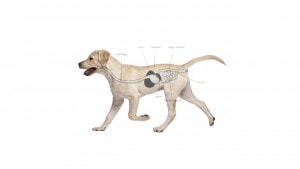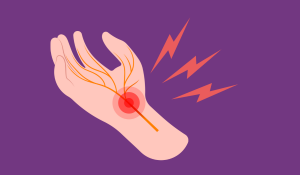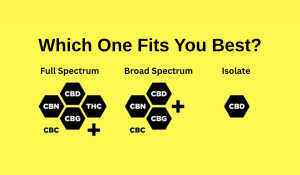Schizophrenia is a mental disorder characterized by distorted thinking, difficulty functioning, and a general abnormality in relating to external surroundings. It may vary widely from person to person, and can last indefinitely. Treatment typically includes some combination of anti-psychotic medication, and psychotherapy and/or social interventions. While some evidence suggests CBD can reduce psychotic symptoms, more research is ultimately needed.
Schizophrenia is generally diagnosed after recurrent displays of associated symptoms. In general, the symptoms are characterized as an abnormal way of relating to and processing reality. In practice, they can vary widely. In addition to the symptoms above, the following symptoms can be present in individuals dealing with schizophrenia:
• Unusual motor behavior, including a lack of response to others or external stimuli, strange or unnecessary movements, and general disorder in physical behavior
• Inability to communicate in an effective or coherent way, including disorganized responses and garbled or meaningless speech
• “Negative symptoms,” including failure to make eye contact, lack of interest in activities or surroundings, neglect of personal hygiene, and similar behaviors
Individuals displaying these qualities — particularly in young adulthood — may be referred to a doctor, who can make a diagnosis of schizophrenia based on physical tests and a psychological exam.
Despite many innovations in mental health treatment, schizophrenia treatment is still relatively imperfect. It often involves any number of anti-psychotic medications — including clozapine, aripiprazole, paliperidone, and many other drugs — which can help to manage symptoms, but may also have notable side effects.
Psychosocial treatment can also be useful, including individual and family therapy, as well as social and vocational skills training.
There is some evidence that CBD reduces psychotic symptoms, particularly in early stages of psychosis, suggesting CBD may have a role to play in treating schizophrenia. However, more research is certainly needed to fully determine the potentially therapeutic role of CBD in treating schizophrenia.
Because schizophrenia is a complex disorder that manifests in very different ways in unique individuals, it is essential to consult with a medical professional before using CBD to treat symptoms of schizophrenia.

Explore this cbd consumption methods tutorial and follow the step-by-step process to select, use, and verify the safest ways to consume CBD for wellness.
Read More
Learn what CBD edibles are, their main types, expected effects, legal status, safety factors, and how they compare to other forms of CBD.
Read More
Therapeutic Uses of CBD Managing Chronic Pain with CBD Struggling with chronic pain? CBD might help. Studies suggest it can reduce inflammation and alleviate discomfort,...
Read More
Just as CBD may help humans due to its interaction with the body’s endocannabinoid system, the same is true of dogs. CBD has the potential...
Read More
Cannabis has been used for millennia to treat numerous health conditions. Current research offers promising results on the effects of CBD oil on breast cancer.
Read More
What Is CBD for Cats? CBD (Cannabidiol) is a natural compound from hemp. It’s non-psychoactive, meaning your cat won’t get “high.” Instead, it works with...
Read More
1. Understanding Neuropathic Pain Neuropathic pain results from nerve damage or dysfunction, causing symptoms like burning, tingling, or sharp shooting pains. Common Causes: Symptoms Include:...
Read More
CBD for Pets: A Pet Parent’s Guide to Dosage We all want the best for our pets, especially when they’re struggling with pain, anxiety, or...
Read More
What Is Lupus? Lupus is a long-term autoimmune condition that can impact multiple organs, including the skin, heart, lungs, and kidneys. The most common type...
Read More
1. Full-Spectrum CBD: The All-In-One Option What it is: Contains CBD, minor cannabinoids, terpenes, flavonoids — and less than 0.3% THC. Why choose it: Promotes...
Read More